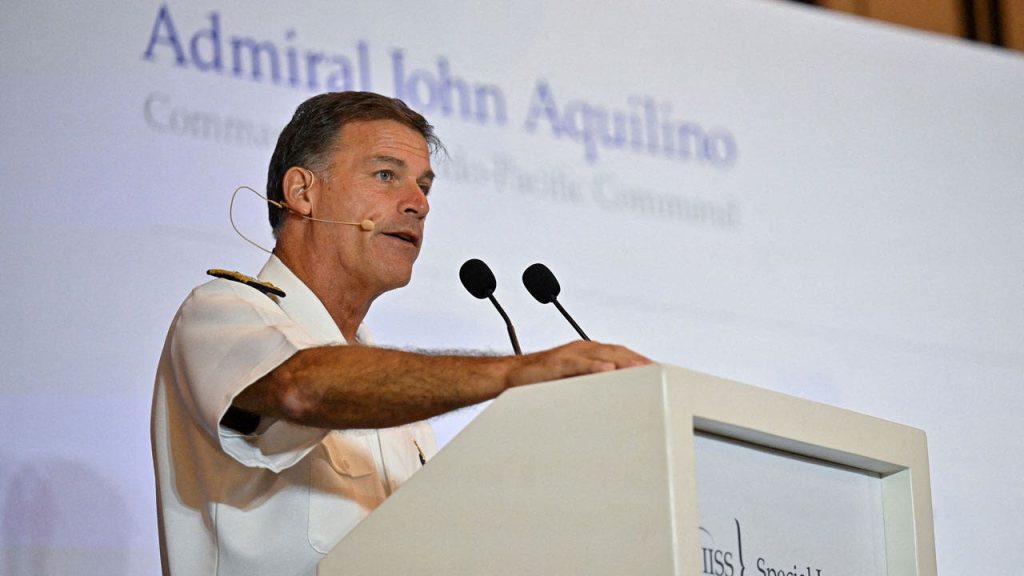Admiral John Aquilino, the head of the U.S. Indo-Pacific Command, expressed concern over China’s increase in defense spending, especially in the midst of what he described as a failing economy. He questioned the accuracy of China’s official growth rates, stating that the country’s economy had been impacted by turmoil in its real estate sector. Aquilino raised alarm over China’s military spending being much higher than the 7.2% increase declared by the country last month, noting that despite economic struggles, China was prioritizing military capability.
Aquilino criticized China’s aggressive rhetoric and actions in the South and East China Seas, particularly around disputed areas like the Second Thomas Shoal and Taiwan. He highlighted an escalating campaign of coercion and pressure by China in relation to Taiwan, expressing concern over the situation. The Chinese foreign ministry did not immediately respond to requests for comment on Aquilino’s remarks. Despite Aquilino’s criticisms and concerns, a top Chinese military leader assured foreign naval officials that China remains committed to resolving maritime disputes through dialogue while maintaining its position against abuse.
In addition to China, Aquilino also took aim at North Korean leader Kim Jong Un’s regime, condemning their prioritization of military spending over addressing food shortages in the country. He labeled the regime’s actions as “disgusting,” pointing out that despite economic sanctions, resources were directed towards military capabilities rather than providing for the North Korean population. Aquilino’s remarks underscored his broader concerns about countries prioritizing military spending over addressing pressing humanitarian needs.
With Aquilino set to leave his post next month, his comments reflect growing tensions and concerns within the Indo-Pacific region regarding China’s military activities and spending. The increasing assertiveness of China, particularly in disputed maritime territories and towards Taiwan, has raised alarm among regional and international observers. Aquilino’s criticisms come amidst broader geopolitical shifts and challenges in the region, highlighting the complex dynamics at play and the need for continued vigilance and engagement.
The situation in the Indo-Pacific region, characterized by China’s military expansion and aggression, presents a significant challenge for regional stability and security. Aquilino’s remarks underscore the importance of monitoring and addressing China’s actions and intentions, particularly in light of its growing military capabilities. The ongoing disputes in the South and East China Seas, as well as the escalating tensions surrounding Taiwan, highlight the potential for conflict and escalation in the region. As countries navigate these complex dynamics, diplomatic efforts and multilateral cooperation will be crucial in managing and mitigating risks.
Despite these challenges, Aquilino’s comments also emphasize the need for continued dialogue and engagement with China, recognizing the importance of addressing differences through peaceful means. While concerns persist over China’s military activities and spending, efforts must be made to foster constructive relationships and open channels of communication. As the region navigates these uncertainties, strategic alignment and cooperation among like-minded countries will be essential in promoting stability and security in the Indo-Pacific.


